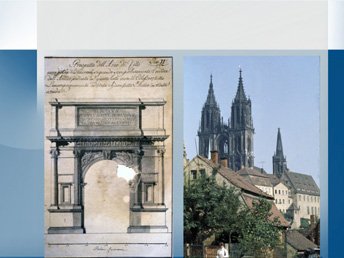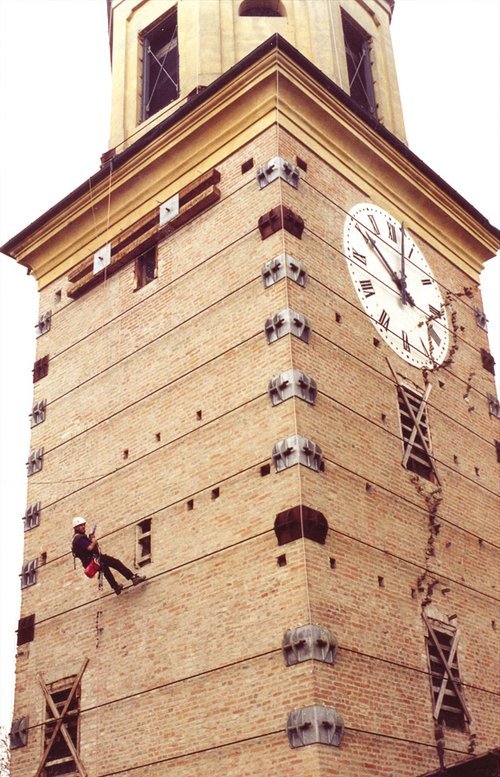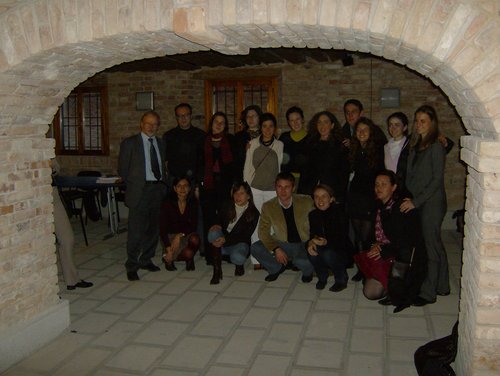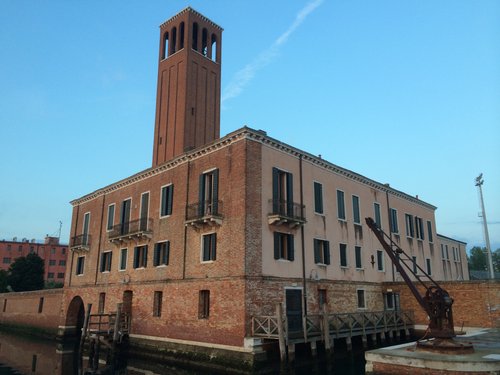Economics and Techniques for the Conservation of the Architectural and Environmental Heritage (Joint international degree- 2nd level Master, One year)
| Study programme: | Economics and Techniques for the Conservation of the Architectural and Environmental Heritage (ETCAEH) |
|---|---|
| Main fields of study: | Preservation, Planning and Management of Built and Environmental Heritage; Preservation techniques, materials and methodologies; Urban and territorial preservation; Economics of culture; Cultural policies; Cultural tourism; |
| Programme code: | 9AR |
| Programme cycle: | Specialisation |
| Name of the qualification: | Second Level Master Diploma |
| Qualification title: | Second Level Master |
| Qualification abbreviation: | |
| Final examination: | yes |
| Dean: | prof. dr. Martina Bergant Marušič |
| Programme director: | prof. dr. Saša Dobričič |
| ECTS coordinator: | prof. dr. Iztok Arčon |
ETCAEH is a 1 year joint second level Master. The specific feature of the master is the joint diploma issued by both ETCAEH founders, namely University of Nova Gorica (SI) and Università IUAV di Venezia (I).
Programme description
ETCAEH is a 1 year joint second level Master. The specific feature of the master is the joint diploma issued by both ETCAEH founders, namely University of Nova Gorica (SI) and Università IUAV di Venezia (I).
ETCAEH program is one of the initiators of the post-graduate education in the field of integrated heritage protection both at national and at European context. Since its establishment in 2005, a group of leading international experts from partner universities and institutions have been implementing innovative forms of education, which attract students from all over the world. The program is based on an interdisciplinary integration of basic scientific disciplines and competencies in the field of protection, planning and management of architectural, urban and landscape heritage.
The aim is to gain knowledge and investigate existing and new theoretical and methodological fundamentals, which ensure the understanding of heritage values, and get acquainted with the specific skills that are required in the research and professional practice, also through innovative and sustainable solutions.
Lectures are held in English, the official language of the course is English. The course is carried out in inspiring historical contexts: Lanthieri Manor in Slovenia and at the premises of the University of Nova Gorica in Venice, Italy.
Admission requirements
To qualify for entry into the graduate program Economics and Techniques for the Conservation of the Architectural and Environmental Heritage, applicants must satisfy the following admission requirements:
- have completed a 2nd cycle master’s study preogramme;
- have completed at least a four-year academic undergraduate programme accredited with 240 ECTS credits;
- have completed a uniform five year master’s study programme accredited with 300 ECTS credits;
- have completed a specialization after previously finished professional study programme, and had passed additional study obligations within 30 to 60 ECTS credit points;
- have completed an equivalent program abroad;
Educational and professional goals
At ETCAEH course you will be encouraged to develop a wide set of specific skills that are necessary for heritage assessment, interpretation, preservation and management. Heritage understanding and the sustainable and equitable development of sites require top experts able to use and apply an interdisciplinary set of knowledge ranging from scientific and technical to humanistic and social principles and approaches. The program offers a distinctly interdisciplinary and international working environment with unique range of top academic and professional experts . As a final outcome, your research results should be publishable or represent solid base for as a single article.
The program is carried out in cooperation with ICCROM (International Centre for the Study of the
Preservation and Restoration of Cultural Property), and other international organizations and universities.
Requirements for the completion of a one-year joint program for the study of Economics and Techniques for the Conservation of Architectural and Landscape Heritage (ETKAKD):
Second level master's degree in Economics and Techniques for the Conservation of Architectural and Environmental Heritage is part of Doctoral program in Cultural heritage Studies.
The student completes the study of Second level Master ETCAEH after the completion of 60 ECTS credits: 45 ECTS in organized study forms of study , (36 ECTS in compulsory and 9 ECTS in elective courses) and 15 ECTS in Research I.
After the successful completion of all study requirements the University of Nova Gorica and the University of Venice -Università IUAV di Venezia will award the joint diploma, which is valid in Italy and in the European Union as a Second level Master degree (Second level Master).
Courses refresh
1. year
| Compulsory courses | Hours | ECTS |
|---|---|---|
| Economics of cultural heritage and creativity | 270 | 9 |
| Fundamentals of preservation of historic urban and cultural landscape | 180 | 6 |
| History and theory of the conservation of the built heritage: principles and approaches | 180 | 6 |
| Integrated project work | 180 | 6 |
| Research I | 450 | 15 |
| Selected topics in sustainability of heritage: preservation, planning and management | 270 | 9 |
| General elective courses | Hours | ECTS |
| Cultural heritage, common goods and the law | 90 | 3 |
| Methodologies of historic research for heritage interpretation | 90 | 3 |
| Realizing values of built environment: fundamentals of socio economic approach | 90 | 3 |
Module Course Materials and techniques
| Specialized elective courses | Hours | ECTS |
|---|---|---|
| Advanced topics in building techniques | 90 | 3 |
| Selected topics in conservation and restoration practice | 90 | 3 |
| Selected topics in history of building techniques and materials | 90 | 3 |
| Selected topics in real estate valuation and investments | 90 | 3 |
Module Course Management and economics
| Specialized elective courses | Hours | ECTS |
|---|---|---|
| Cultural heritage tourism: a territorial management perspective | 90 | 3 |
| Cultural policy design: principles and cases | 90 | 3 |
| Markets for culture and public policy | 90 | 3 |
| The economic valuation of culture: methods, management and policy | 90 | 3 |




